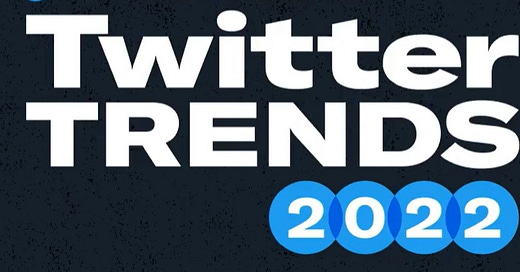The Social Media Mirage
How the Democratic Party and Left Media Mistook Social Media for Public Opinion
In the 2010s and early 2020s, many Democratic Party leaders, left major media institutions, and corporations began treating Twitter and other social media platforms as mirrors of public opinion. This was a costly mistake.
Though social media appeared to offer unfiltered access to “the people,” it amplified a narrow, unrepresentative group: typically younger, urban, highly educated, and ideologically progressive. Mistaking this digital subset for the mainstream led to political missteps, cultural backlash, and a growing disconnect between elite institutions and the broader public.
Twitter, in particular, functioned as a megaphone for the most vocal and ideologically extreme users. A small fraction of accounts produced the vast majority of political content, often driven by outrage, progressive politics, and activist campaigns. These voices dominated online discourse not because their views were widely held, but because the platform rewarded emotional intensity and viral potential. Yet many journalists and politicians, who were themselves highly active on Twitter, began to confuse visibility with consensus.
As a result, newsrooms increasingly allowed online trends to shape coverage. Editorial choices were influenced by the moral and ideological frameworks of progressive Twitter, from activist language to identity-based narratives. While this resonated with certain audiences, it alienated many others. Americans outside elite urban bubbles saw media coverage as biased, moralizing, and disconnected from everyday concerns. Trust in journalism, already in decline, dropped even further.
The Democratic Party faced similar fallout. By echoing online rhetoric, intentionally or under pressure, Democratic leaders alienated the very constituencies they needed: working-class, moderate, young men, and non-college-educated voters, including many in black, Latino, and Asian communities. Slogans like “defund the police,” fixation on gender pronouns, the use of academic jargon, and the embrace of symbolic language like “Latinx” were not the product of grassroots demands but of activists online.
Much of what circulated on social media—progressive purity tests, language policing, and virtue signaling—doesn’t merely fail to connect with most Americans; it often repels them. While a vocal minority online may celebrate performative activism and identity-based branding, the broader public prefers practical solutions over ideological statements. Polls consistently show that most Americans are wary of culture wars, fatigued by polarization, and skeptical of symbolic politics. But many politically left leaders and institutions, fearing social media backlash, followed these trends anyway.
This disconnect was not limited to politics and media. Many Fortune 500 corporations also mistook online sentiment for public demand. In response to Twitter pressure and progressive moments, companies rolled out DEI programs, social justice campaigns, and activist-themed branding.
The backlash was swift. Bud Light faced boycotts after a marketing partnership with a transgender social media influencer; Target lost billions in market value following controversy over Pride-themed merchandise; and several major companies, including Disney and McDonald’s, quietly scaled back DEI initiatives after public and political blowback. What seemed savvy on Twitter proved tone-deaf to much of their consumer base.
These weren't isolated public relations missteps. They were symptoms of a broader misunderstanding. When elites mistake digital outrage for popular will, they risk not only electoral or financial loss but the erosion of trust and legitimacy.
In The Guardian Op-Ed, “Elon Musk’s Twitter coup has harmed the right. They are now simply ‘too online’,” Paolo Gerbado, a political scientist at Complutense University in Madrid, writes that the transformation of progressive-dominated Twitter into right-wing dominated X may result in the same thing happening to the Republican Party. Republicans may now mistake the loud rightwing voices on X as representative of widespread public opinion.
References:
70% of U.S. social media users never or rarely post or share about political, social issues (Pew)
How Minority Voices on Social Media Can Skew Perceptions and Decision-Making. Nedheya.B PCC(ICF)
Social media influences the mainstream media (CEPT)
Bluesky Isn't a Bubble. It's a Containment Dome. by Josh Barro
“Elon Musk’s Twitter coup has harmed the right. They are now simply ‘too online’,” (Paolo Gerbado)




